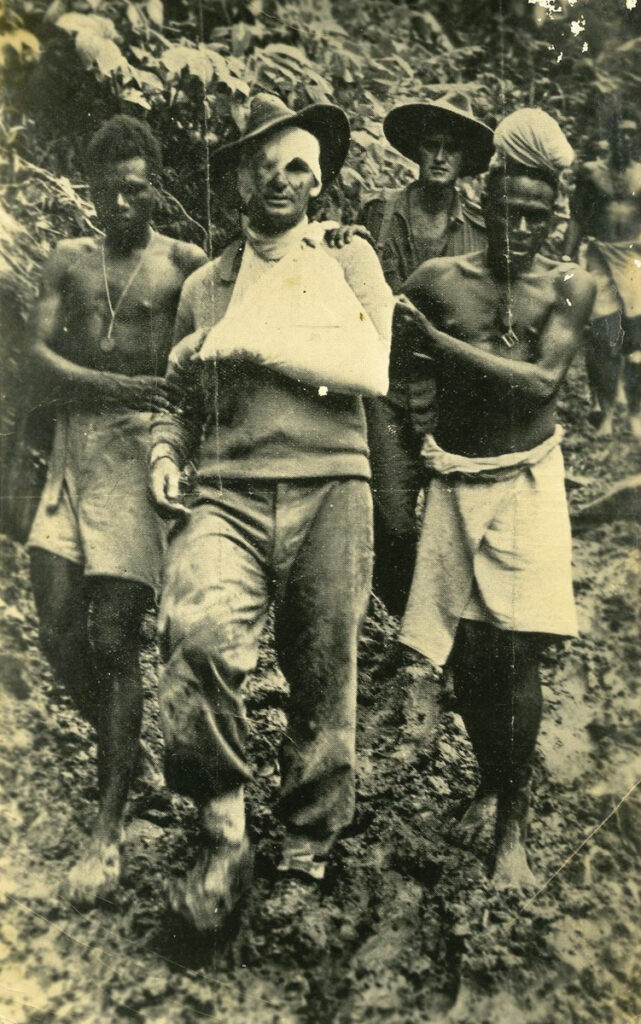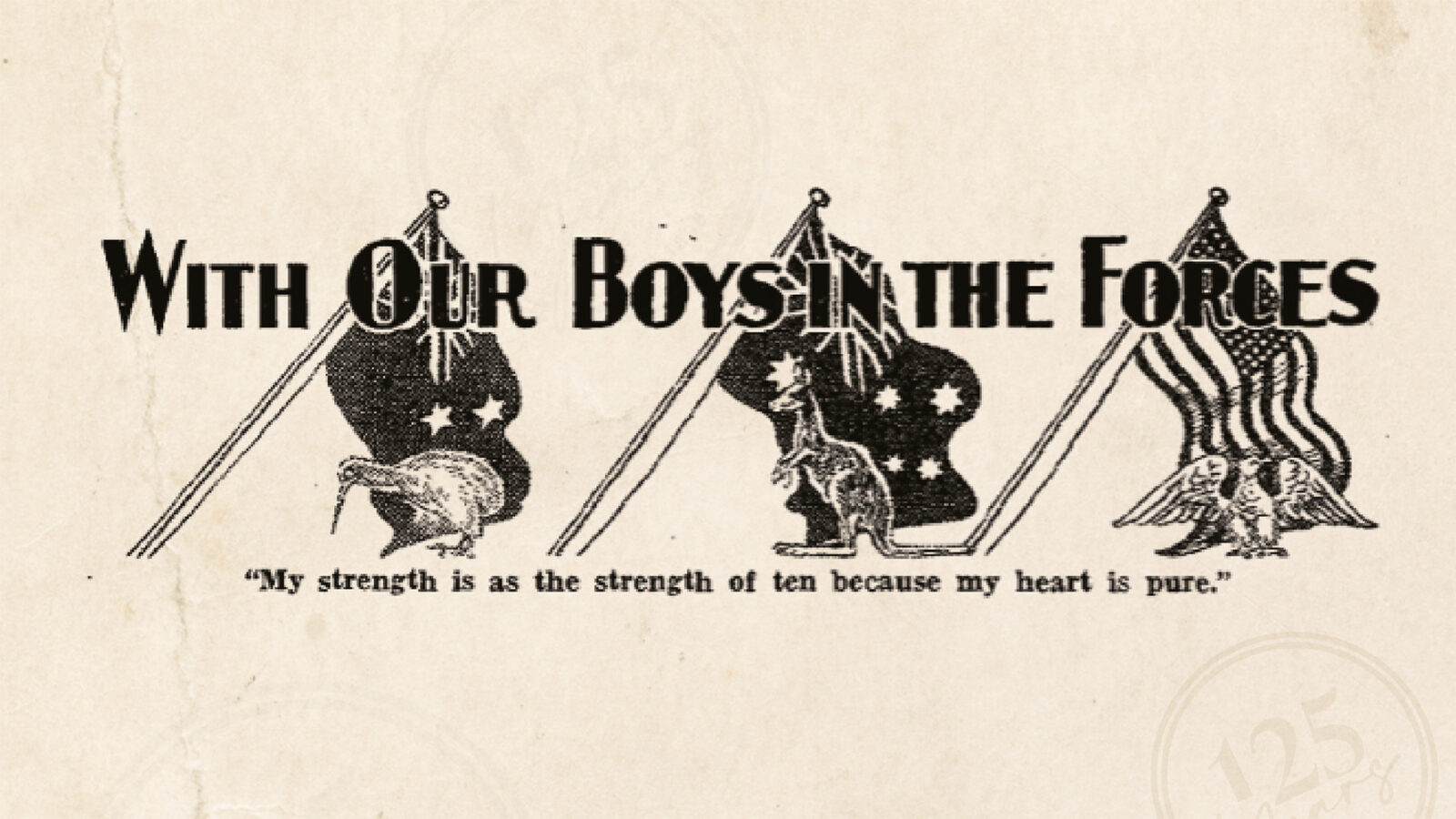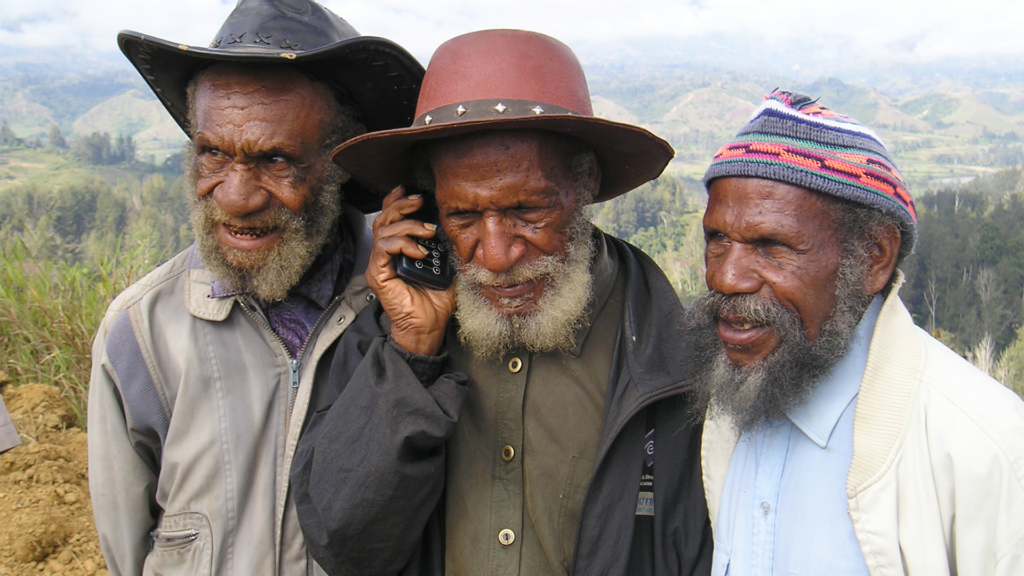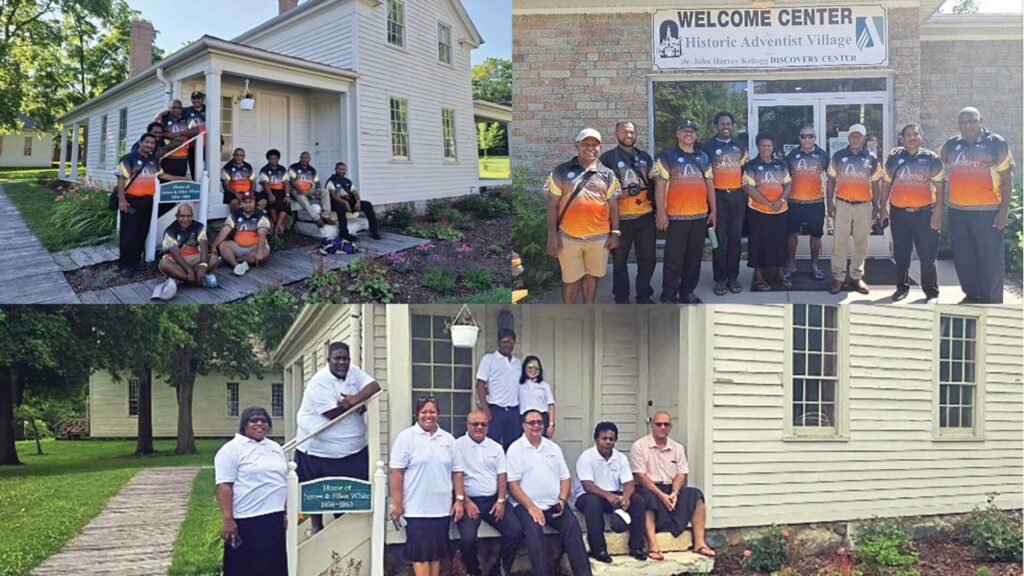The years between 1940 and 1945 have seen the most interesting shift in content featured in Record yet. The beginning of this period was consistent with previous years, with a heavy focus on news from the mission fields in the Pacific islands. In 1942, which was referred to as ”a year of evacuation and sadness in mission history” (vol 49 no 24), most expat missionaries were evacuated, by order of the Australian Government, to their homelands due to the Japanese invasion of the Pacific.
A new Record column began in November 1942 titled ”With Our Boys in the Forces”, which was introduced as follows: ”To you who are called to the service of your King and country this page is dedicated. We trust it will prove a real link between us all. We feel sure the loved ones at home will read with tender interest the paragraphs taken from your letters which will appear from time to time, so please write to us often, telling of your experiences. We can then pass them on for the help and encouragement of others.”
By June 1945, this regular column had become the most popular page in Record, with editors calling for more submissions from service personnel and their home folk. The letters and messages shared in this column frequently aimed to reaffirm Adventist young men to always do their best in following orders but to remain firm in their boundaries regarding keeping the Sabbath day holy and not bearing arms. Many young men wrote about how their commanders were understanding of their faith and would allow them to have Sabbath as a day free from military duties.
Throughout World War II, the Record was sent by mail to Adventists who were serving in the military. An Adventist young man deployed overseas had this to say about the role Record played for him at this time:
”The other Sabbath another boy and I took a bundle of Signs, Records, and Exchanges down to the foot of a beautiful three-hundred foot waterfall, and in the refreshing cool and peace enjoyed a spiritual feast. Then bowing our heads we asked God to make us as strong as the solid rock on which we stood, and to remember our loved ones far away. These papers also keep us in touch with our people and the work in which we still have a part.”

There are countless other stories of how Record was keeping believers connected throughout this very turbulent period in time. It makes us proud to know that we still continue on this valued legacy throughout the church in the South Pacific Division today.
The years of 1943 and 1944 were described as a time of “increasing news of native believers here and there, a few missionaries returned, but mostly of hope deferred”. There was anxiety regarding the welfare of not only Adventist prisoners of war in Papua New Guinea, but also of native leaders, teachers and believers in the invaded Pacific countries. There was also concern for mission property, with those still on the ground doing their best to protect buildings and belongings from the invading Japanese army. Here is a retrospectively interesting story that was printed in Record about how a mission boat was saved (vol 49 no 40):
Listen in for one moment more to the story of the saving of our mission ship, “The Portal”—one of the few mission ships which have survived this war. At personal risk to himself, Ragoso hid this boat in the jungle. The mast was removed, and a native house built over the deck, and the engine cared for in another place. This little ship is once more ready to go to sea, and a great shout went up from the natives as they finally got the old engine going again, “Batuna is alive again! Batuna is alive again!”
Reports coming in from the Pacific islands in 1944 said that mission vessels had been sunk by “the enemy”, and that locals were not permitted to observe the Sabbath. It was reported that three Adventist teachers were killed, with many other church members tortured by the Japanese army.
“We were also concerned over word from [Papua New Guinea] of persecution by the Japanese of our native teachers and people, of their Bibles and hymn-books being burned—some being used for cigarette papers by Japanese officers—and their clothes being taken away, and of their suffering privation and want, yet holding firm to the truth and to the mission” (vol 49 no 40).
In early 1945, a number of male missionaries returned to Papua. “A little later we were grateful to God as we saw our missionaries begin to move out from Australia not only to Papua and New Guinea, but also to the Solomons. News flashes began to come in from these men en route to their old fields, and the month of June was a never-to-be-forgotten time as thrilling letters came from our missionaries who had returned, giving a word-picture of their meeting with our native leaders”–Union Conference Secretary (vol 49 no 40). Reports in Record told of happy reunions amongst missionaries and believers who were now safe to return to mission property and worship together again.
On September 2, 1945 World War II ended. The following letter from an Adventist young man who was stationed in the Pacific was featured in the next Record on September 10, 1945:
”We are just awaiting word of the results of Japan‘s surrender offer, and of course are hoping that she will accept our peace terms. When the news came out last Friday night the chaps absolutely went mad. About 11 pm everybody seemed to turn out, and they started marching through the tent lines singing, playing trumpets, banging cans, and in general making as much noise as they could. However, the merry-making soon died down and we were able to resume our interrupted sleep.”
At the time of the official conclusion of the war, a Division Session was held in Australia. Record printed a special “Quadrennial Session” issue on October 1, 1945. On the first page, sub-editor Marian Hay summarised the war years excellently:
“When last we met in Session, our Division was under the shadow of war, and this was reflected in our curtailed mission work, our restricted number of delegates, and the uncertainty which made any long-range planning particularly difficult.
Now all this is changed. The war has been brought to a victorious conclusion; our mission field is taken back from the invader; and opportunities greater than ever before confront us. The way is opening for our missionaries to return, and rebuild their homes, their stations, and our institutions after the devastations of war. New missionaries are with us, ready to enter upon their life-work.
There is an undercurrent of expectancy throughout the gathering, a realisation that we are upon the threshold of the greatest advance of our mission history, the grandest opportunity that has ever come to us as a people to impart our message to the perishing world—the only message that can save men and women from the fast-coming doom. It is felt that great consequences will hinge upon present decisions.”
This is one of the most interesting Record issues from this time, as Church leaders from all around the South Pacific Division shared on the impact that the war had on church growth.






